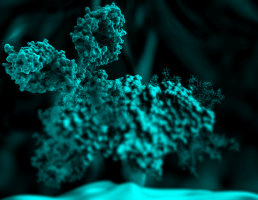
New data has emerged from three Phase 2 trials support the efficacy and safety of blinatumomab in adults with acute lymphoblastic leukaemia (ALL).
These data were presented in oral sessions at the 57th Annual Meeting and Exposition of the American Society of Hematology (ASH) in Orlando, Florida
In a Phase 2 confirmatory multicenter single-arm trial (BLAST), adult patients with B-cell precursor ALL with minimal residual disease (MRD) who received blinatumomab monotherapy demonstrated clinically meaningful relapse-free survival (RFS), as measured in the key secondary endpoint.
Median RFS was 18.9 months following initiation of blinatumomab.
MRD refers to the presence of leukaemia blast cells below the limits of detection available with standard assessment.
Results from the Phase 2 BLAST trial were nominated for inclusion in the Best of ASH Session.
Other presentations demonstrate blinatumomab's potential in a high risk subpopulation of patients with relapsed or refractory Philadelphia chromosome-positive (Ph ) B-precursor ALL and confirm blinatumomab's efficacy in a subset of patients with relapsed or refractory Philadelphia chromosome-negative (Ph-) ALL after an allogeneic haematopoietic stem cell transplantation (alloHSCT), who typically have poor outcomes with current therapies.
"A key goal in the treatment of blood cancers is to prevent relapse from occurring," said Sean E. Harper, M.D., executive vice president of Research and Development at Amgen.
"Achieving a complete minimal residual disease, or MRD response, is important because having no detectable MRD places ALL patients at a lower risk for relapse when compared to patients with persistent or recurrent MRD. The data presented are highly encouraging because they support the potential of blinatumomab in a broader spectrum of ALL patients, including those at an earlier stage of disease."
ALL is a rare and rapidly progressing cancer of the blood and bone marrow.
In adult patients with relapsed or refractory ALL, median overall survival (OS) is just three to five months.
Currently, there is no broadly accepted standard treatment regimen for adult patients with relapsed or refractory ALL beyond chemotherapy.
Around 15-30 percent of adult ALL patients are Ph and these patients typically have a poor response to standard therapy, short remission duration and low survival rates.
Source: AMGEN